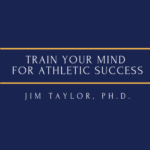Despite what many athletes and coaches believe, competitions aren’t won on the day of the competition, just before the competition, or even during the competition. Rather, they are won in training in the weeks and months leading up to the competition. What you do in training will determine how you perform and the ultimate outcome of the competition. Training is where the development of Prime Sport begins. It’s the place where all of the physical, technical, tactical, and mental requirements of sport are established.
Despite this importance, I’m constantly amazed by the poor quality of training that I see athletes engage in, even at the world-class and professional levels. I see poor effort, ineffective focus, and little intensity. Yet these athletes expect to perform their best in competition. That’s unlikely to happen because they’re not engaging in prime training. Prime training involves maintaining the highest level of effort, focus, and intensity consistently throughout a practice session. Without prime training, Prime Sport will never be achieved.
Too often, I see athletes begin training without any clear idea of what they’re doing there. They have nothing in particular they’re working on to improve. When this happens, athletes are not only not improving, they’re also making it more difficult to improve because they’re further ingraining old and ineffective skills, which makes it harder to learn new skills.
Goal and Purpose
To prevent this, you need to always train with a goal and a purpose. A goal is some aspect of your sport that you want to improve. It might be physical, technical, tactical, or mental. A purpose is something specific you work on during practice that will enable you to achieve your goal. For example, if a figure skater’s goal is to improve the elevation of her jumps, her purpose might be to do six sets of plyometrics every other day to increase her explosiveness. Or if a tennis player’s goal is to improve his confidence, his purpose might be to use more positive body language between points. Every time you go to practice, you should have a goal and a purpose. If you don’t, you’ll be getting better at getting worse.
100% Focus and Intensity
Another area most athletes need to work on is their focus and intensity in training. You will perform in a competition at the level of focus and intensity at which you train. Ideally, you should train and perform at 100% focus and intensity. When I talk about 100% focus and intensity, I mean training at or near the level of focus and intensity that allows you to perform your best.
Too often I see athletes training at a level much different than the level at which they want to compete. When they’re just practicing, they may be at 70% focus and intensity. In simulated competitions such as scrimmages in basketball or practice matches in tennis, they may up their focus and intensity to 80%. Yet, when they get to a competition, they want to perform at 100%. But when they try to get to 100%, one of two things happens. Because they’ve been training at 70%-80% focus and intensity, that’s what comes out in the competition. Or they try to up it to 100% focus and intensity, but because they haven’t trained at that level, their performance actually gets worse rather than better because their bodies and minds aren’t accustomed to being at 100%. In either case, the result is that you don’t perform your best.
Train for Adversity
An essential skill that you need to develop to perform your best is responding positively to adversity. Most athletes like to train in ideal conditions, but conditions are rarely perfect in competition. Too often in practice, I see athletes put forth less effort or stop completely when the conditions get too difficult, for example, rain, cold, or poor field conditions.
Athletes will say it doesn’t matter since it’s just practice. But athletes don’t realize two things. Whatever you do in practice is what you will do in a competition. If you give up in practice when things get too tough, then you’re becoming skilled at giving up in the face of adversity. It is often how athletes respond to adversity, not the actual adversity itself, that determines who wins the competition. The reality is that difficult conditions occur for all competitors, so your opponents also have to deal with them. What makes the difference in a competition is who responds to the adversity best.
The only way to learn to compete in adverse conditions is to practice in them. This skill comes from accepting that the conditions will interfere with your ability to perform your best and also realizing that your opponents must deal with them as well. Learning to respond positively to adversity comes from realizing that you probably won’t perform your best in difficult conditions. By training for adversity, you also come to understand the adverse conditions and you learn how to adapt yourself to them. By training for adversity, you develop the skills so that your performance doesn’t deteriorate too much due to the tough conditions.
Responding positively to adversity also comes from being determined to not let the adversity beat you. A part of this is the ability to accept that you will make more mistakes and to not allow yourself to become frustrated because your performance declines. You must stay positive and motivated even when things get tough. Having trained for adversity, when you compete in adverse conditions, you can say, “I’ve been training in these conditions. I know what to do to perform well. This is no big deal.”
One More Thing, One More Time
A great lesson I learned about what it takes to be great came from the 1972 Olympic skiing gold medalist Bernard Russi. He told me a simple rule that he found that enabled him to elevate himself above the other great racers of his time: One more thing, one more time. He assumed that all of his competitors were working hard. So, every time he came to the end of a workout he thought about how hard they were working and said to himself, “One more thing, one more time.” He would then do one more sprint or one more set of weights or take one more training run. By doing one more thing, one more time, he believed he was doing that little bit more than his competitors that would separate himself from them on race day.
The Value of Mistakes
Perhaps the most frustrating part of sports is all the mistakes you make as you develop as an athlete. Most athletes view mistakes as failures. Athletes often see mistakes as a personal attack on their ability as an athlete and their worth as a person. For many athletes, making mistakes is unacceptable and a source of frustration and other negative emotions.
But you may not realize that the best athletes in the world make mistakes all of the time. What makes these athletes great is not that they don’t make mistakes, but rather the attitude they have about their mistakes and how they respond to those they do make.
Mistakes are a natural and necessary part of your becoming a better athlete. They really mean that you’re becoming more successful because you’re moving out of your comfort zone. Mistakes mean you’re working to improve. They are also valuable information showing you what you need to work on. If you’re not making mistakes, you’re not pushing yourself to become a better athlete. They indicate that you’re taking risks, going for it, and doing something new. Mistakes mean success when you learn from them and you stop repeating them.
What is ironic is that most athletes’ attitudes toward mistakes actually increase the likelihood that the mistakes will continue. By getting frustrated and discouraged, you are more likely to make more mistakes because you become tentative, doubtful, anxious, and distracted by the mistakes. Learning from your mistakes, and not repeating them, involves responding in a positive and constructive way.
The goal is to reduce the number of mistakes you make in practice by figuring out how to correct them and ingraining the proper execution. The first step is to identify what you’re doing wrong that is causing the mistake. For example, a soccer player is consistently kicking the ball over the goal. Next, you can specify what you need to do to correct the problem. In the case of the soccer player, she needs to keep her head down and her weight more forward. Then, when you prepare to execute the skill again, you can focus on the correction, which should solve the problem that’s leading to the mistake being repeated.
Get Out of Your Comfort Zone
Most athletes like to stay in their comfort zone. They like to perform the way they usually do and they get uncomfortable if they try to do anything different. This approach might make you feel good, but the problem is that you’ll never perform your best or move up to a new level.
To become your best, you must move out of your comfort zone. This means making changes s that will help you in the future. For example, a hockey goalie’s comfort zone is staying in the crease. If he want to get better, though, he needs to develop the ability to come out of the crease, when necessary, to cut off the angle or challenge a breakaway. The risk of moving out of your comfort zone is that you’ll make some mistakes at first and might perform poorly for a while. But as you do it more, you become more skilled and familiar with it until you reach a point at which it’s now comfortable. Before you know it, you’ve extended your comfort zone and your performances to a new level.
Never Give Up
There’s a tendency to give up in practice when you’re not performing well. You might shorten your drilling because you just can’t get the new technique or you stop trying because what you’re working on is just too difficult. Athletes rationalize giving up by saying that training doesn’t really matter. I would argue otherwise. Training counts because everything you practice either contributes to or interferes with developing effective sport skills and habits.
If you give up in practice, you’re learning the skill of giving up. If you practice giving up in training, when you perform poorly in a competition, your learned skill will be to give up. The skill of never giving up is so important because something rather important happens every time you give up: You automatically lose. If you keep fighting, you may not win, but at least you have a chance. You want to ingrain the skill of giving your best effort and never giving up no matter what happens during a competition.






